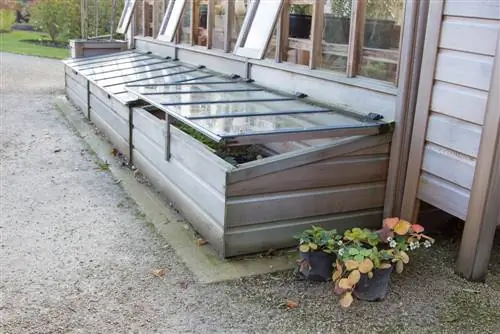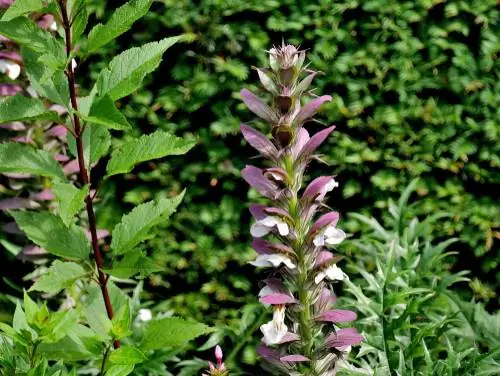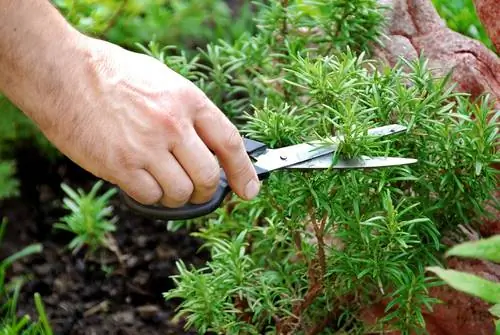- Author admin leonars@hobbygardeners.com.
- Public 2023-12-16 16:46.
- Last modified 2025-06-01 06:02.
Rosemary comes from the evergreen maquis of the Mediterranean region and has adapted perfectly to the conditions prevailing there over the millennia. This applies not only to the climate, but also to the ideal soil conditions.

Which soil is best for rosemary?
Rosemary prefers lean, sandy, well-drained and dry soil because it has deep roots and is sensitive to waterlogging. A pH value in the neutral to alkaline range is ideal, although lime fertilization is compatible.
As sandy and permeable as possible
According to its origin, the popular culinary herb prefers poor - preferably sandy - well-drained and dry soil. The plant develops very widely branched and deep roots that are able to draw moisture and nutrients from the soil even from a depth of several meters. So that the roots can penetrate the soil well, the soil should be loose and permeable. Rosemary does not like heavy, clayey soils - not only because it cannot grow there according to its nature, but also because such soils are very good at storing water. However, the plant, which is very sensitive in this respect, cannot tolerate excessive moisture or even waterlogging.
Tips & Tricks
Like almost all Mediterranean herbs, rosemary loves soils with a pH value in the neutral to alkaline range - limescale is no problem at all for sun worshipers. Therefore, you can safely water the plant with tap water. Fertilize with lime once or twice a year.






